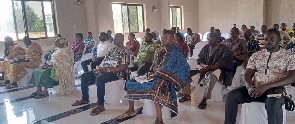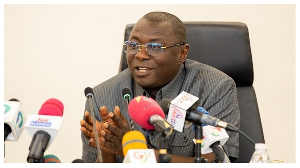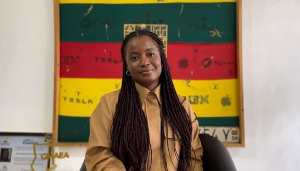The Ghana Integrity Initiative in collaboration with the Lands Commission has held a multi-stakeholder land forum in Atebubu under the Land and Corruption Act in Africa project.
The project which runs from 2022 to 2025 is a collaboration between Transparency
International and seven of its national chapters which include Ghana, Kenya, Uganda, Madagascar, Zimbabwe, Zambia, and South Africa.
The project is an upscale of the first phase carried out between 2015
and 2019 with funding from the German Federal Ministry for Economic Cooperation and Development (BMZ) aimed at ensuring corrupt practices in land administration and land deals are addressed.
It also contributes to improving the livelihoods of men and women.
The project has an additional objective of promoting networks of women, men, and the youth to be equipped to demand transparency and accountability in the land sector as well as increasing awareness of land rights among community groups most at risk of corruption.
Michael Okai, the project coordinator defined land corruption as the corrupt practices within land administration and management.
He cited the payment of bribes, women being sexually extorted in exchange for land titles, women and young people being denied land rights, and the situation where a community is excluded from participating in land deals between private investors and local authorities as some examples of land corruption.
Isaac Yaw Buabeng, the Bono East regional head of the Public and Vested Land Division of the Lands Commission gave an overview of the large-scale land acquisition process which includes the consultation, concurrence, and post-concurrence stages highlighting specific activities required at each level.
The Bono East regional surveyor at the Lands Commission, Bernard Kofi Boateng took participants drawn from farmer-based organizations, traditional authorities, youth groups, community members, private and public institutions as well as the media through the new Land Act 2020 Act 1036.
He spoke about the structure of the new law and acts repealed as a result as well as other highlights of the act.
Mr. Boateng touched on the three parts of the law namely interest and rights in land, land administration and management as well as offences and miscellaneous provisions.
Participants asked questions on issues of interest to them to which answers were provided.
The function was chaired by the Adontenhene of the Atebubu traditional area, Nana Kwabena Kyere III.
Regional News of Wednesday, 1 November 2023
Source: Daniel Oduro-Stewart, Contributor

















